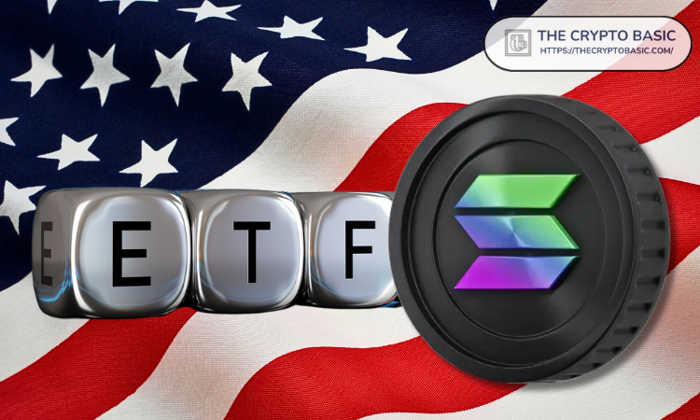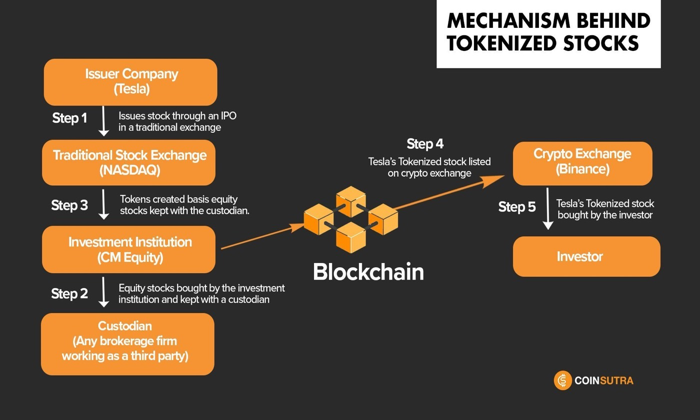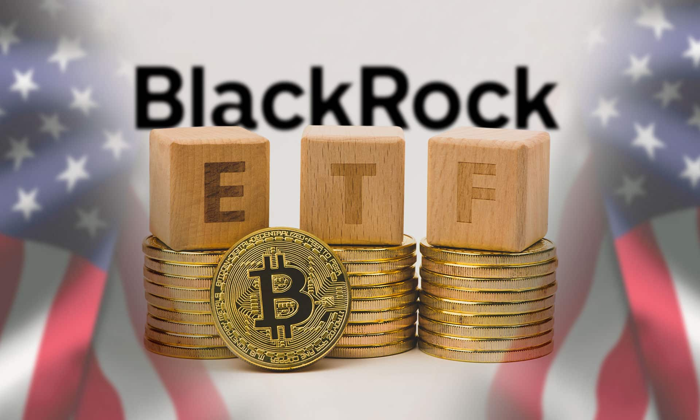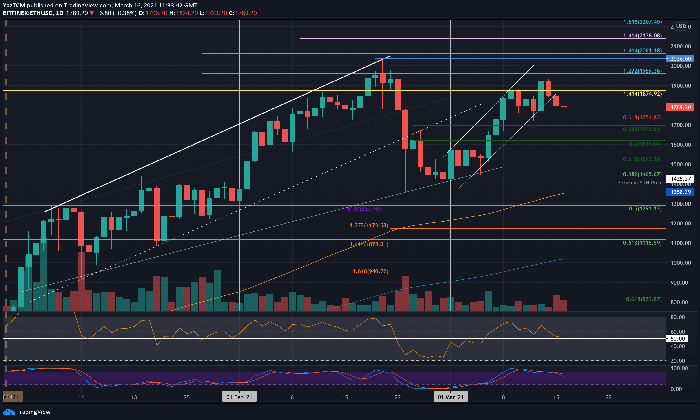The RWA Tokenization Fund by VanEck is set to revolutionize the investment landscape, particularly for institutional investors looking for exposure to real-world assets like US Treasury bills. In collaboration with the innovative tokenization platform Securitize, this fund aims to provide a competitive edge against major players such as BlackRock’s BUIDL and Franklin Templeton’s BENJI. Offering an entry point into the burgeoning market of tokenized funds, VanEck’s VBILL is expected to thrive across several major blockchains including Ethereum, Avalanche, BNB Chain, and Solana. With investments starting at $100,000 on certain platforms and $1 million on Ethereum, the RWA Tokenization Fund opens new avenues for liquidity and efficiency in asset management. As the trend of tokenization continues to grow within traditional finance, this initiative positions VanEck at the forefront of a transformative wave in investing.
VanEck’s launch of its first tokenized fund, catering specifically to real-world assets, marks a significant shift in how institutional investing is approached. The RWA Tokenization Fund is designed to capitalize on the lucrative market for liquid assets, presenting an appealing alternative to traditional finance models. By partnering with Securitize, VanEck enters a competitive arena alongside industry giants like BlackRock and Franklin Templeton, enhancing its position in the rapidly expanding universe of digital securities. This initiative not only facilitates easier access to critical investment opportunities but also aligns with investors’ increasing demand for innovative financial instruments. As global trends continue to push the boundaries of investment strategies, the focus on tokenized assets is expected to reshape the financial landscape.
Introduction to VanEck’s RWA Tokenization Fund
VanEck has officially announced the launch of its first tokenized real-world asset (RWA) fund, VBILL, targeting institutional investors who are seeking innovative ways to gain exposure to US Treasury bills. This move aligns VanEck with a wave of traditional financial institutions embracing the growing demand for tokenization in today’s market. Collaborating with the leading tokenization platform Securitize, VanEck positions itself at the forefront of the RWA tokenization movement, designed to facilitate investments in an asset class traditionally dominated by conventional financial instruments.
The VBILL fund will utilize multiple blockchain technologies, including Avalanche, BNB Chain, Ethereum, and Solana, making it accessible to a wide range of investors. The minimum investment requirements are set at $100,000 for most platforms, while Ethereum requires a more significant commitment of $1 million. This flexibility in entry points is aimed at capturing market share amidst increasing competition from industry giants such as BlackRock, which recently launched its own investment product focused on tokenized assets.
Competitive Landscape of RWA Tokenization Funds
The tokenization of real-world assets is rapidly reshaping the investment landscape, with significant players like BlackRock and Franklin Templeton entering this space alongside VanEck. This competitive dynamic is anticipated to energize the market, driving innovations and offering more investment choices for institutional investors. With Apollo also launching a private credit tokenized fund earlier this year, the momentum suggests that traditional asset managers are recognizing the strategic advantages presented by tokenization, such as increased liquidity and efficient transactional capabilities.
Market analysts predict that as more firms adopt tokenized fund structures, the existing frameworks of finance will transform, allowing for unique investment strategies and diversified portfolios. The push towards RWA tokenization not only democratizes access for investors but also enhances settlement times, creating a more agile financial ecosystem compared to legacy systems. For VanEck, establishing the VBILL fund amidst these competitive offerings signals their commitment to innovation and adaptability in the evolving financial markets.
Benefits of Tokenization in Traditional Finance
Tokenization offers several key benefits that could significantly improve the efficiency of traditional finance systems. By converting physical assets into digital tokens, processes like securitization and trading can become more streamlined. Investors can enjoy faster transaction times and increased liquidity for assets that were previously difficult to trade. For example, tokenizing US Treasury bills as part of the VBILL fund allows for quicker settlement and reduced overhead costs, making it an attractive option for institutional investors.
Furthermore, the integration of blockchain technology facilitates fractional ownership, giving investors the opportunity to own a share of an asset without needing to purchase it outright. This innovation allows for a broader participation in markets that were once limited to high-net-worth individuals. Advocates argue that such advancements could lead to enhanced market activities, promoting deeper involvement and investment from a wider spectrum of players in the financial sector.
Understanding the Role of Securitize in Tokenization
Securitize plays a pivotal role in VanEck’s RWA tokenization strategy, enabling the conversion of real-world assets into digital securities on the blockchain. With over $3.9 billion in assets tokenized to date, Securitize has demonstrated its capabilities in streamlining the tokenization process, ensuring compliance while enhancing investor accessibility. By leveraging Securitize’s platform, VanEck can efficiently manage the complexities associated with regulatory requirements, paving the way for a seamless investment experience within its RWA fund.
Moreover, Securitize’s recent funding round, which included investment from BlackRock, underscores the confidence in their innovative approach to digital securities. This partnership not only enhances VanEck’s position in the emerging tokenized investment landscape but also highlights the growing recognition of tokenized assets as an essential component of modern finance. As more firms collaborate with tokenization platforms like Securitize, the potential for broad-reaching impacts on traditional asset classes increases significantly.
Regulatory Insights on RWA Tokenization
The Securities and Exchange Commission (SEC) has been closely monitoring the rise of tokenized assets, with Chair Paul Atkins highlighting the transformational potential of on-chain securities. By likening the shift to digital audio in the music industry, he emphasizes that the evolution of securities into a blockchain environment could fundamentally reshape trading and ownership practices. For firms like VanEck, understanding and navigating regulatory landscapes will be crucial as they launch innovative products like the RWA tokenization fund.
As regulations evolve to accommodate these new financial instruments, the dialogue between financial institutions and regulatory bodies becomes increasingly important. The tokenization of RWAs requires careful consideration of compliance measures to protect investors while fostering innovation. In this context, VanEck’s proactive engagement with regulatory developments will not only ensure the firm remains compliant but also enable it to lead the charge in shaping the future of finance through tokenization.
The Future of Tokenized Funds in Traditional Finance
The advent of RWA tokenization represents a significant shift in traditional investment paradigms, leading to a future where more fund managers like VanEck can offer innovative products. As institutional investors continue to seek ways to diversify their portfolios with accessible and liquid assets, tokenized funds are expected to gain traction in the investment community. This trend is likely to catalyze further interest from both institutional and retail investors in the coming years, as awareness of the advantages of tokenization continues to grow.
Moreover, as technology evolves, the integration of advanced blockchain solutions within financial services can lead to even greater efficiencies. The potential for tokenized investments to provide an alternative avenue for accessing large, often illiquid asset classes can revolutionize how funds are raised and managed. Companies like VanEck and their competitors will play a critical role in developing a framework that harnesses these innovations while appealing to both traditional and emerging investors.
Key Takeaways on RWA Tokenization
The launch of VanEck’s RWA Tokenization fund underscores a significant trend in investment strategies aimed at integrating traditional assets with digital innovations. By collaborating with recognized platforms like Securitize and leveraging advanced blockchain technology, VanEck is paving the way for more accessible and liquid investment opportunities. As this market continues to mature, staying informed of developments and understanding the changing regulatory landscape will be critical for investors.
With other major firms joining the tokenization movement, the conversation around RWA investments is sure to intensify. Greater investor participation, combined with enhanced operational efficiencies, could lead to a new era in finance where traditional barriers are diminished, allowing for broader market access. As more assets become tokenized, fundamentally altering the investment landscape, it is essential for financial stakeholders to adapt to these changes to remain competitive.
VanEck’s Position in the Evolving Financial Ecosystem
In the landscape of finance, VanEck’s entry into the RWA tokenization sector positions it as a forward-thinking player amidst competitive forces. The alignment with established technologies and platforms reinforces its dedication to adopting innovative strategies to serve institutional investors. This proactive approach not only strengthens VanEck’s market position but also contributes to the broader acceptance of tokenized financial products as a viable alternative to traditional investment avenues.
As competition heats up with firms like BlackRock launching their own tokenized funds, VanEck must consistently innovate and showcase the tangible benefits of their offerings. By maintaining transparency and emphasizing compliance, they can foster trust among investors who may still be cautious about adopting digital assets. The commitment to excellence in the realm of tokenized real-world assets will be crucial for sustaining their competitive edge in a rapidly shifting financial landscape.
Conclusion: The Impact of Tokenization on Future Investments
The ongoing transformation driven by RWA tokenization reflects a larger movement toward integrating technological advancements into the fabric of traditional finance. As firms like VanEck and their competitors innovate, the benefits of adopting tokenized fund structures are becoming increasingly apparent. Investors are likely to embrace enhanced liquidity, lower costs, and streamlined transactions, all of which redefine investment standards.
Looking ahead, the marriage of traditional finance and blockchain technology promises to create an ecosystem that is not only more efficient but also more inclusive. The implications for investors, asset managers, and the broader financial landscape are profound, signaling a new era where barriers are lowered and access is expanded. As advancements continue to unfold, staying informed and adaptable will be key for all participants in the investment community.
Frequently Asked Questions
What is the VanEck RWA Tokenization Fund?
The VanEck RWA Tokenization Fund is a tokenized fund aimed at institutional investors, offering exposure to US Treasury bills. It collaborates with the tokenization platform Securitize and intends to provide a modern alternative to traditional asset management.
How does the VanEck RWA Tokenization Fund compare to funds like BlackRock’s BUIDL?
The VanEck RWA Tokenization Fund competes directly with BlackRock’s BUIDL and other tokenized funds in the market. It aims to attract institutional investors by providing unique advantages such as enhanced liquidity and faster settlement times for real-world assets.
What minimum investment is required for the VanEck RWA Tokenization Fund?
Investment in the VanEck RWA Tokenization Fund requires a minimum of $100,000 on Avalanche, BNB Chain, and Solana, while the Ethereum blockchain has a higher minimum investment requirement of $1 million.
What advantages does real-world asset tokenization offer?
Real-world asset (RWA) tokenization, as showcased by the VanEck RWA Tokenization Fund, offers advantages like faster settlement times and improved liquidity for previously illiquid assets, transforming the traditional finance landscape.
Which blockchains will the VanEck RWA Tokenization Fund be available on?
The VanEck RWA Tokenization Fund will initially be available on multiple blockchains, including Avalanche, BNB Chain, Ethereum, and Solana, allowing for diverse access for institutional investors.
Who is the partner of VanEck in the tokenization of real-world assets?
VanEck partners with Securitize, a leading tokenization platform that has successfully tokenized over $3.9 billion in assets, to develop the RWA Tokenization Fund.
How does the VanEck RWA Tokenization Fund fit into the broader tokenization trend?
The VanEck RWA Tokenization Fund exemplifies the growing trend of traditional finance firms entering the RWA tokenization market, joining competitors like BlackRock and Franklin Templeton to innovate financial offerings.
What role does blockchain technology play in the VanEck RWA Tokenization Fund?
Blockchain technology underpins the VanEck RWA Tokenization Fund, enabling on-chain securities management that enhances efficiency and facilitates new market activities, akin to the historical shift from analog to digital in music.
| Key Aspects | Details |
|---|---|
| Fund Name | VBILL |
| Investment Firm | VanEck |
| Target Investors | Institutional Investors |
| Competitors | BlackRock’s BUIDL, Franklin Templeton’s BENJI |
| Investment Amounts | $100,000 for Avalanche, BNB Chain, Solana; $1 million for Ethereum |
| Supported Blockchains | Avalanche, BNB Chain, Ethereum, Solana |
| Partnership | Securitize |
| Advantages of Tokenization | Faster settlement, enhanced liquidity for illiquid assets |
| SEC Roundtable Statement | Chair Paul Atkins compares on-chain securities to digital music revolution |
Summary
The RWA Tokenization Fund, launched by VanEck, signifies a notable step in the evolution of investment strategies aimed at institutional investors. With the competitive landscape featuring significant players like BlackRock and Franklin Templeton, VanEck’s VBILL fund illustrates the growing integration of blockchain technology in traditional finance. This innovative approach not only acknowledges the advantages of tokenization, such as improved liquidity and quicker settlement times, but also anticipates a transformative shift in how securities may be issued, traded, and owned in the future.
The RWA Tokenization Fund is an innovative initiative by investment giant VanEck, aimed at revolutionizing access to real-world assets through tokenization. This fund, designed for institutional investors, is poised to compete with titans like BlackRock’s BUIDL and Franklin Templeton’s BENJI, solidifying VanEck’s position in the rapidly evolving financial landscape. By collaborating with the industry leader Securitize, the RWA Tokenization Fund will facilitate investments in U.S. Treasury bills and other major assets on various blockchain platforms including Avalanche, BNB Chain, Ethereum, and Solana. With a minimum investment starting at $100,000, the fund offers a unique opportunity for investors looking to leverage the benefits of tokenized funds. As traditional finance merges with blockchain technology, the RWA Tokenization Fund stands at the forefront of this transformative wave, marking a significant shift in how we perceive and manage investments in real assets.
The launch of VanEck’s real-world asset tokenization vehicle exemplifies a growing trend in the financial industry where traditional investment firms are embracing blockchain technology. This fund, which focuses on the digitization of tangible assets, aims to provide institutional players with enhanced liquidity and faster transaction times, setting it apart from conventional financial products. By entering the tokenized fund market, VanEck joins a competitive arena alongside leading firms such as BlackRock and Franklin Templeton, who are also vying for a slice of the lucrative market for tokenized real assets. With the backing of Securitize, a pioneer in asset tokenization, this fund represents a significant step toward modernizing investment strategies and capitalizing on the advantages of on-chain securities. As the financial landscape evolves, the growing interest in tokenized assets illustrates a pivotal moment in how financial markers will function in the digital age.














